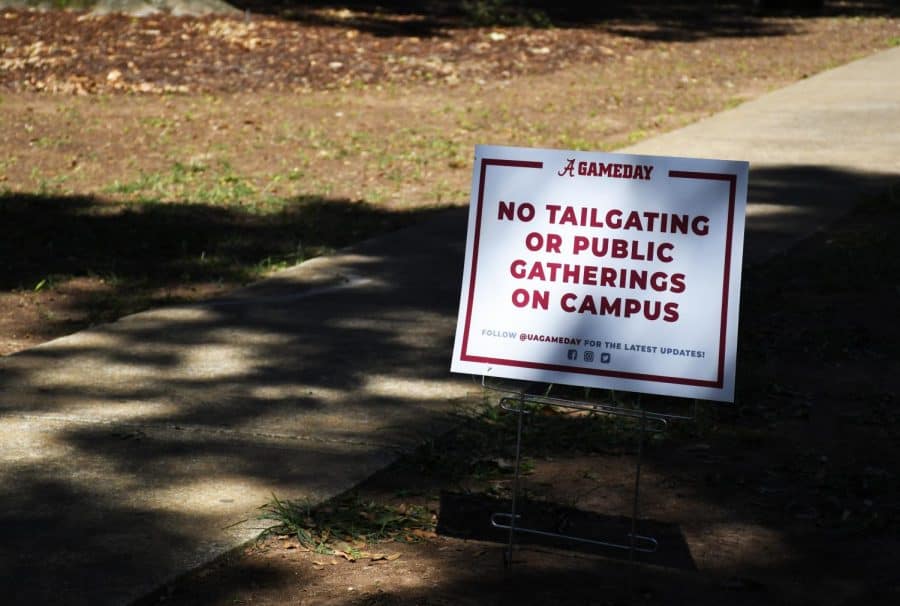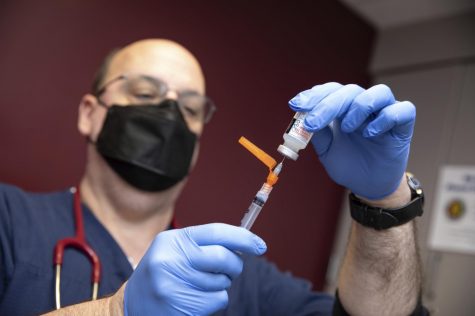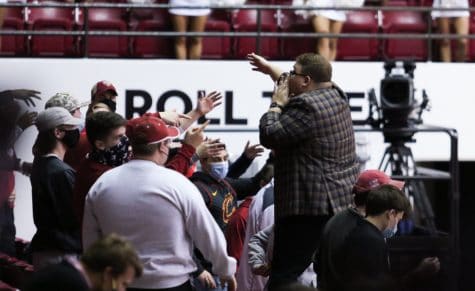Businesses bounce back despite quieter football season
October 14, 2020
Throughout the COVID-19 pandemic, businesses across the country have felt the impact of the economic crash that took place in April and May.
Most business and economic experts predicted it would take at least a year for the economy as a whole to recover, but many small businesses were expected to completely go bankrupt and never come back.
According to the U.S. Bureau of Labor Statistics, the unemployment rate for Tuscaloosa in April was 16.6%, which was 1.9% higher than the national average. Since then the unemployment rate has fallen back down to 6.5% as of August 2020, which is 1.9% lower than the national average.
In an interview in late June, Tuscaloosa Mayor Walt Maddox said the absence of students and faculty in April played a huge role in the massive economic loss that Tuscaloosa took during that time.
Over the summer, Maddox took to Twitter and cited a 2019 study from the Culverhouse College of Business at The University of Alabama. This study found that the University’s student body has a $609 million economic impact on the Tuscaloosa metropolitan area. The football seasons from years past had around a $200 million impact on the Tuscaloosa economy.
At the time, what mainly concerned Maddox and others was the loss of football season. But what Tuscaloosa’s economy needed was its student body back, according to Mike Waller, the owner of Jim ‘N Nick’s BBQ in Tuscaloosa.
In August, the Southeastern Conference (SEC) limited stadium capacity for the 2020 football season. The UA Athletics Ticket Office announced later that they would only allow around 20% capacity for football games and there would be no tailgating on the Quad, which was a tradition for many fans who attend football game days.
Located in downtown Tuscaloosa off of 21st Avenue, the majority of Jim ‘N Nick’s sales come from catering. Most of this catering ends up coming from Alabama football game days. But Waller said this football season and the loss of fans has not been as bad as he was expecting.
Jim ‘N Nick’s decided not to open the dine-in portion of their restaurant until about two weeks ago because they were focused on getting their safety precautions in order. There was not as much pressure to do so because the restaurant’s drive-thru and to-gos were providing steady business, Waller said.
“We just didn’t see a way we could accommodate so quickly and do it right,” Waller said. “I was walking down the Strip [on the Texas A&M game day] and those businesses were not doing it right.”
For Waller, the most important thing about reopening the inside of the restaurant for guests was ensuring their health and safety. A quicker economic recovery gave Jim ‘N Nick’s the opportunity to plan for crowds that game days will still bring.
Waller said many of the restaurant’s employees were put on furlough, which is a temporary leave of absence due to special needs of a company or employer caused by revenue losses.
But now Jim ‘N Nick’s has recovered faster than expected, mostly due to the return of UA students in the middle of August.
At the beginning of the COVID-19 pandemic, Maddox and the city of Tuscaloosa pledged $1 million through the Restart Tuscaloosa plan to small businesses in Tuscaloosa. According to the city of Tuscaloosa’s website, Restart Tuscaloosa “will work as a catalyst to jumpstart Tuscaloosa’s economy by setting a strong foundation for Tuscaloosa businesses and residents in the wake of this international pandemic.”
The funds have been given out to small businesses through the Chamber of Commerce of West Alabama. In a conversation with Maddox in late June, he said about half of the funds had been spent and given to small businesses. Vice President of Economic Development Barkley Garrett said that the rest of the funds have been distributed.
“We had about 500 applicants at the beginning of the pandemic and we were able to help 230 businesses,” Garrett said.
Once the funds were completely spent, Barkley said the Chamber stopped advertising to the businesses in Tuscaloosa. But the application portal remains open so the Chamber can gauge how many businesses are still in need. According to Garrett, there are currently no active funds to aid small businesses. But with the economic turnaround, there are not as many businesses in need.
“Since the funds have been given out, we’ve seen a steep decline in the number of applicants we’ve received,” Garrett said.









